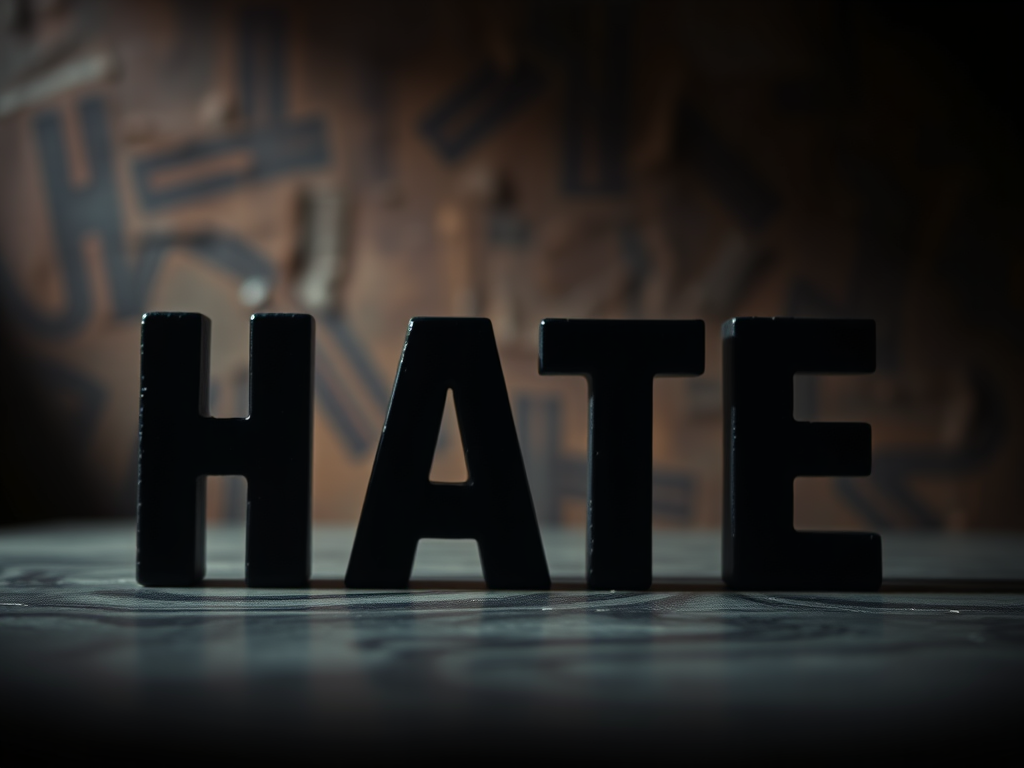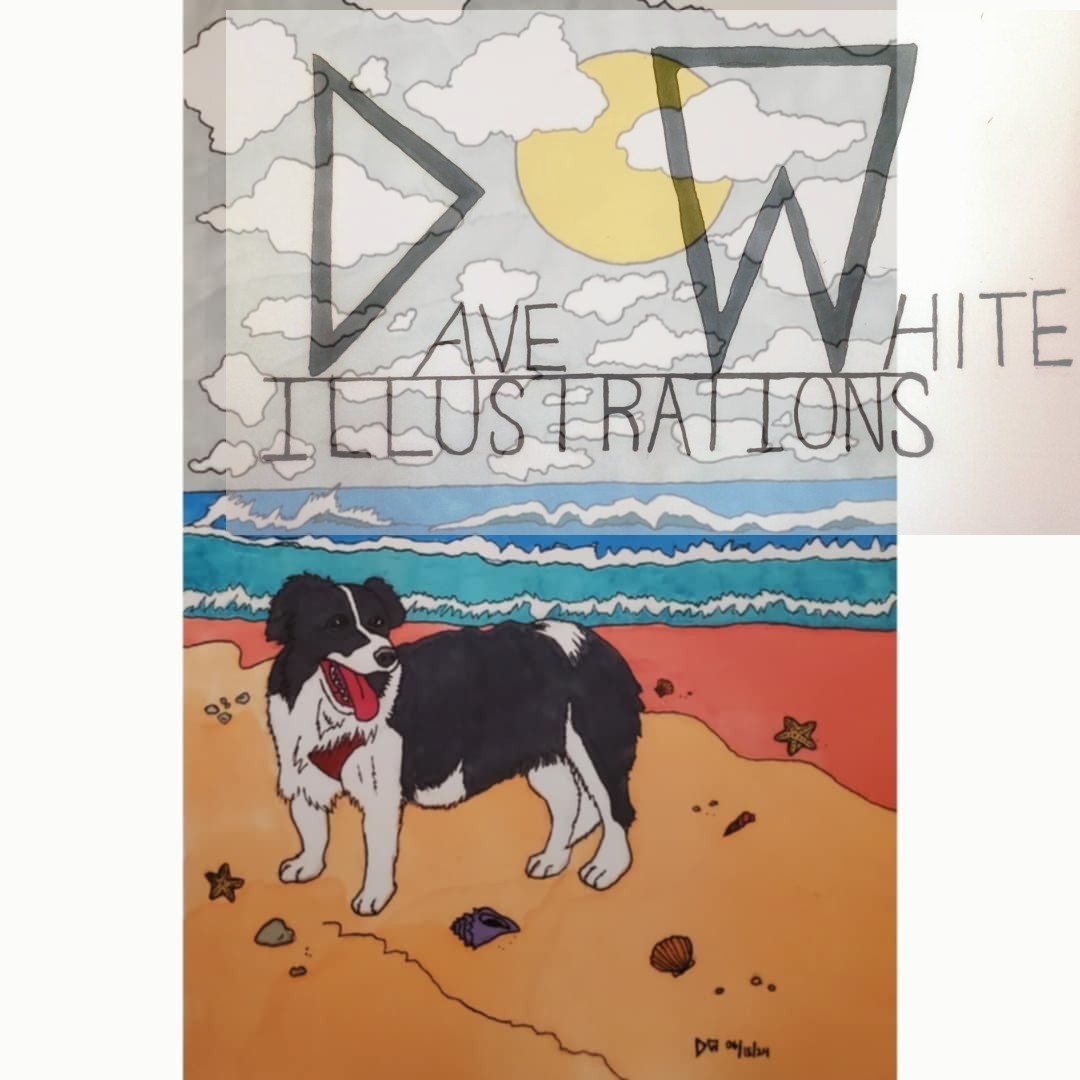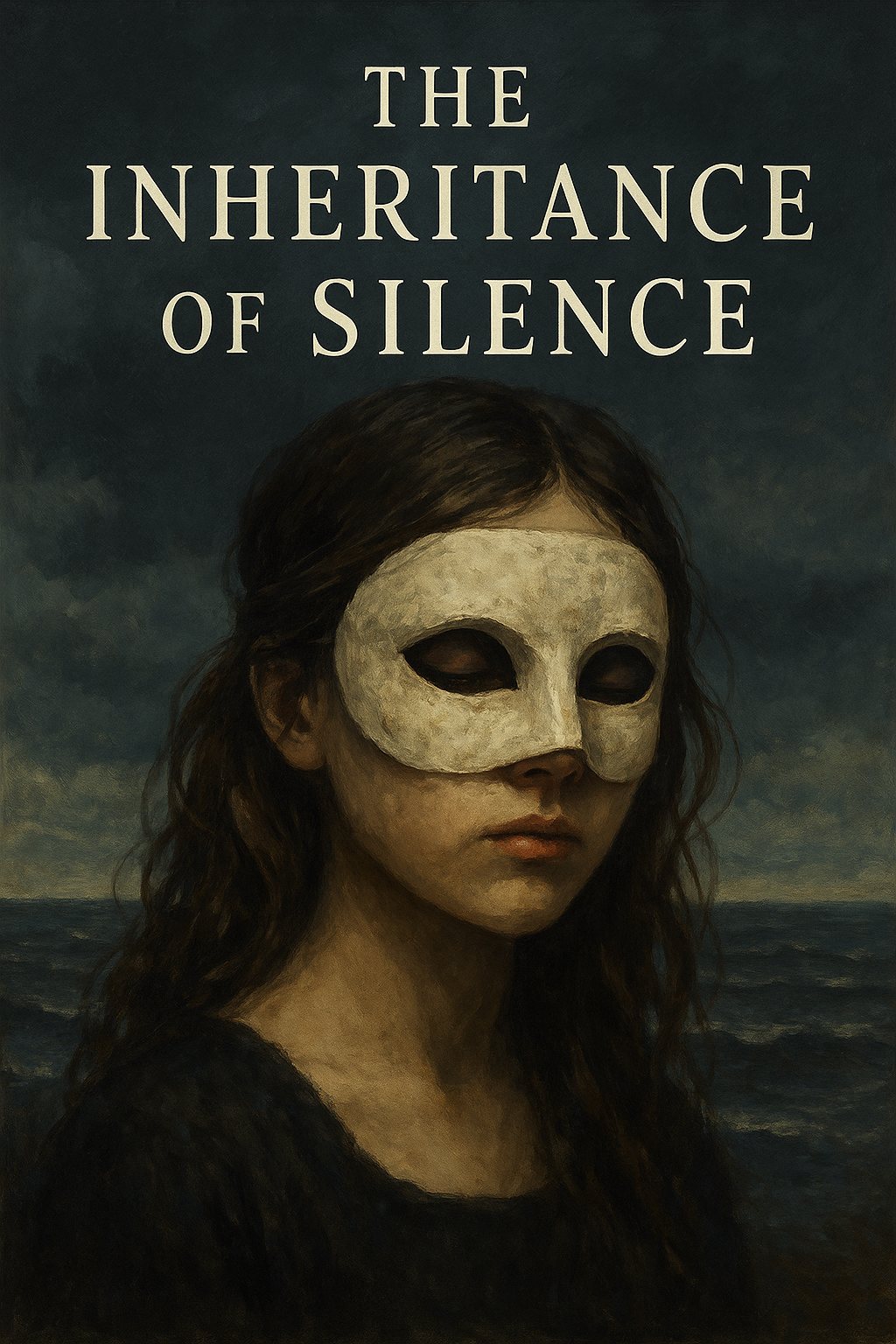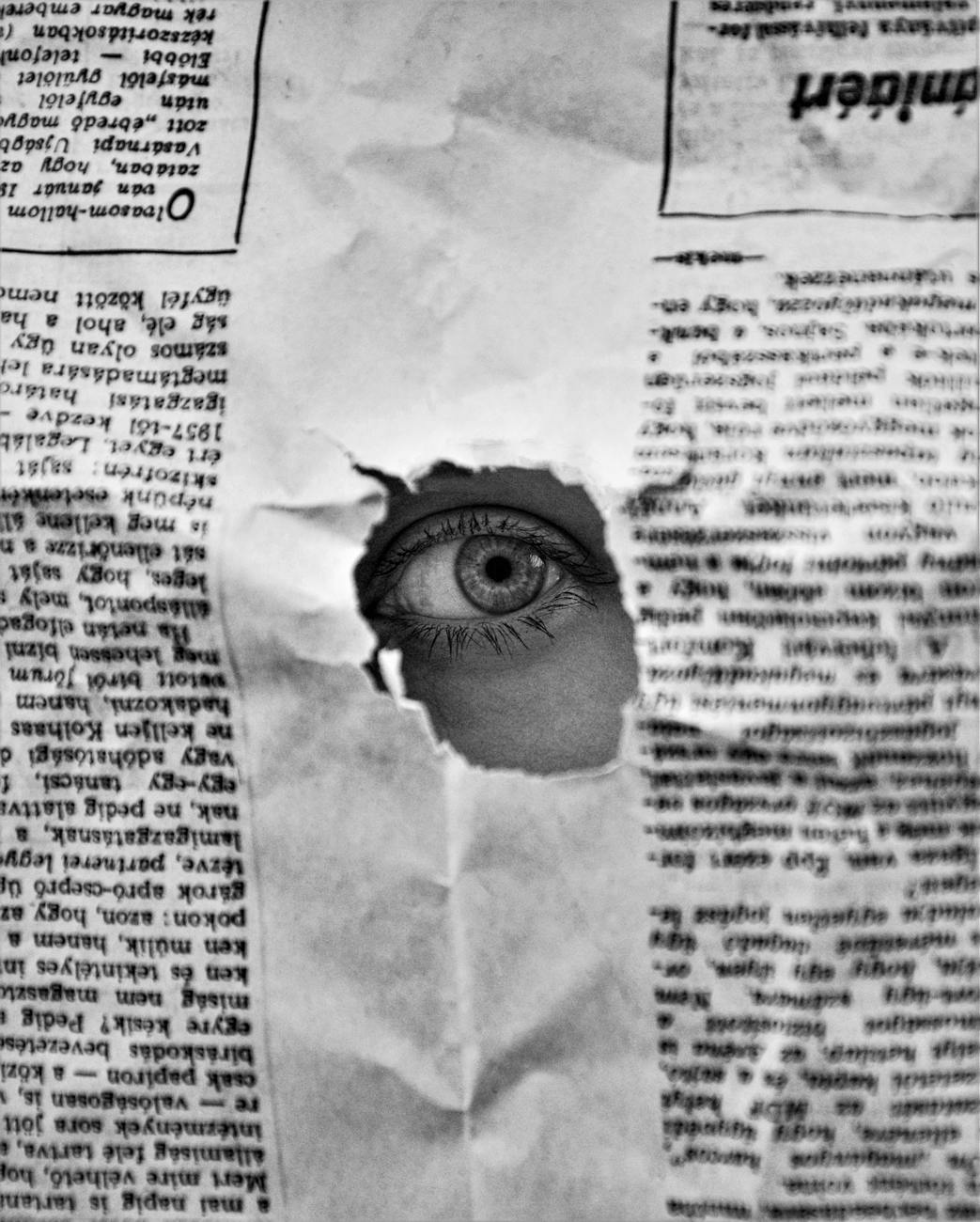Can such a small word mean so much?
Hate means “to feel extreme aversion for or extreme hostility toward”1 someone or something. This detestation is so great that the person expressing it cannot use words like loathe or dislike; they feel the need to say hate. Loathe, according to Merriam Webster, is defined as the following; “to dislike greatly and often with disgust or intolerance”2 . Also in the Merriam Webster, dislike is defined as “a feeling of aversion or disapproval”3.
Although they loathe and dislike, seem like they have the same significance as hate; they’re different. They are not as powerful as hate, because hate is more intense. Nowadays, people use it to tell or show someone how much they don’t like being around or with them. It is a very strong feeling to have and it’s overwhelming. It can really hurt someone to know that there is someone out there that utterly and completely despises you. Hate doesn’t really feel like a ride in first-class for anyone. Imagine if you were to know that this person, the person that you loved the most hated them… Painful isn’t it? There are three stages in life where hate happens to occur. Those three stages are childhood, teenage hood and adulthood.
Your childhood is supposed to be a time filled with bliss and happiness. These years are the ones where your memories are being developed; a carefree age. When thinking about their childhood most people remember bubbles, playing games, coloring and everlasting adventure. How could hatred find its way into this paradise age? How could a child be capable of such an extreme feeling? Hatred emerges into a child’s life in many fashions. One method could be the environment the child was brought up in. If that place was filled with people who were abusive and rude the child might be exposed to hatred earlier than other children. Another way the hate could come into a child’s life is by not receiving the things that they want or need. This affects the child by causing them to have many problems later in life. Such problems are anti-socialism, loneliness, sadness, violence, etc.
When I was younger, I really wasn’t that social. I was the girl in the back of the room who wouldn’t talk. Not that many people knew why I was like that. I was afraid that if someone got to know me really well they wouldn’t like me, maybe even hate me. I was afraid to be myself around others; as a result, I ostracized myself. As time went by, I grew out of my fear and opened myself. I let the real me come out. It was fun for a while until I realized that some people, the people who were there for me since the beginning were starting to hate me. These were the people that I trusted when I was anti- social. So I began a mission: I had to find out the reason why they were feeling this way. They said to me that they don’t want to be with me anymore because I changed. I thought I had changed for the better; I was doing great in school finally and I was happy. They responded to me that they didn’t like my transformation; because I was leaving them behind and that I wasn’t their “kind” anymore. Until this day I still remember those words, they are forever embedded in me. I didn’t forget them not just because it came from the person I thought was the best person in the world, but because I don’t understand how some one could be so hateful.
Now that we know about childhood hatred we can move onto our second stage in life where hatred strikes; Teenage hood. It is extremely hard to tell if a teenager actually really hates. Some teens are really good at hiding their hatred towards others; others are not. The teens that haven’t developed into their mature teenage years yet, can act really hateful towards each other. Thus, bullying, fighting, cyberbullying, name calling, and all those terrible things are born. Teens can also use hate as a tactic to get the things that they want. For example, the following is a sketch of a teenage girl and her mother having an argument:
Teenage Girl: “Mom, can I go out tonight?”
Mother: “Where?”
Teenage Girl: “Just to, you know, hang out with my friends and walk around.”
Mother: “Sorry, but no sweetie. I don’t think I’ll agree to that. You’re too young and smart to be hanging out on street corners like that.”
Teenage Girl: “That’s not fair!!!”
Mother: “I don’t care if it isn’t fair. Life’s not fair.”
Teenage Girl: “I hate you!”
By saying that to her mother, the teenage girl is traumatizing her mother. Her mother will soon feel so bad that she will change her mind and let her daughter go out with safety measures. Varying on the situation, teenage hood hatred is very serious, because the teen can develop thoughts that are dangerous and extreme. If a teen bullies another so much, because they hate them, it might cause the other person (the one that is being bullied) to commit suicide or hurt themselves. Or if a teen had a horrible life so far they might blame for things that they could not control; they begin to feel self—hatred.
As time went by, I had another experience with hate. This time it was I who was feeling this way. I wasn’t happy anymore; I felt that my life was in shambles. I prefer to call this time of my life my Darkest Days; I believed this lasted for about two years. It all started when my grandfather died. I was in ninth grade at the time. This period was the most awful in all my life. I had just met my grandfather two years before he passed. When I first saw him I thought that God was giving me a gift, because I was doing well in life. My grandfather was basically removed from the family before I was born; I never really realized how incomplete I was before he came into my life. He was the perfect grandfather. He always listened, gave to the poor, helped people, and always managed to smile. He died two days before my Quinces (like a sweet 16 but it is celebrated at 15), he was suppose to come as a surprise, but never made it. I thought God was punishing me for having done something wrong.
I fell into a deep depression; I began to write dark poetry instead of happy stories that I use to write, and I cried every day for the longest time. I hated myself so much; I thought it was my fault that he was gone. I told myself every day that he’s never going to come back and my siblings and cousins are never going to feel the warmth and love that he gave off and it was my entirely fault. As time went on, my depression deepened and I began getting sick. My health was deteriorating; my asthma sprung to life once again, I developed anorexia and later on that developed bulimia, and I also began self-mutilation. I despised myself so much that I thought I didn’t deserve to be happy; I only deserved to starve and feel pain. As I grew weaker, I hated myself more. I was basically killing myself over something I couldn’t control.
After a year or so, the people around me noticed that I wasn’t looking or acting like myself anymore. My personality had changed also. They began to seek help for me, even though I didn’t want it. It took a whole lot for them to make me realized that it wasn’t my fault and that I mustn’t hate so much. Through counseling, treatment, medicines and therapy I began to be myself again. It is a hard battle for me but I feel like I am going to win it, even if it is a long process.
Now that we have covered our first stage and second stage hatred could attack, we can move on. This is the third and final stage that hatred can emerge in, which is called adulthood. When adults hate; it can be dangerous. There are many actions that adults have committed, because of their hatred for someone or something. Such acts are riots, murders, abuse, torture, and other horrifying actions. It is terrifying the things that these older people are capable of when they are consumed with the toxins of hatred. Not all adults are exposed to this; some have learned from earlier experiences that it isn’t tolerable. Many adults have acknowledged that it is such an extreme feeling to have. From their young childhood years to their old teenage years, these adults have learned that it hurts people to say these things. They learn to keep their feelings that are that extreme to themselves. They do not want to repeat things that have taken place in their past again.
Since I have not reached my adult years yet, I haven’t had any experience to share with you. All I have for now are my hopes, dreams, and goals for my future. Hopefully I will be one of those adults that won’t have to deal with hatred in my third stage in life. I believe that two is enough for me. Just to imagine facing it again terrifies me to the bone; I am afraid that I might face it. If I do I promise myself that I will act stronger towards it in my adult years, I shall show no fear.
If you feel an extreme feeling, like this one, remember how it could affect people. I advise you to think twice about your actions and words, because they can easily turn things into a dreadfully mammoth mess. Trust me, you don’t want that to happen. It is an overwhelming feeling to hate. If you’re going to use this word you must make sure you have prepared yourself for what is ahead. I have a long journey ahead of me and I’m not going to let HATE get in the way. I hope that reading about my experience gave you a little insight on “hate” and what it really means and what it can do. Next time you’re going to use this feeling against someone….remember my story.
References
1 “Hate.” Dictionary.com. 2010. http://dictionary.reference.com/browse/hate?&qsrc. November 9, 2010.
2 “Loathe.” Merriam Webster Dictionary. http://www.merriam-webster.com/dictionary/loathe. November 9, 2010
3 “Dislike.” Merriam Webster Dictionary. http://www.merriam-webster.com/dictionary/dislike?show=0&t=1289323049,. November 9, 2010





Leave a Reply